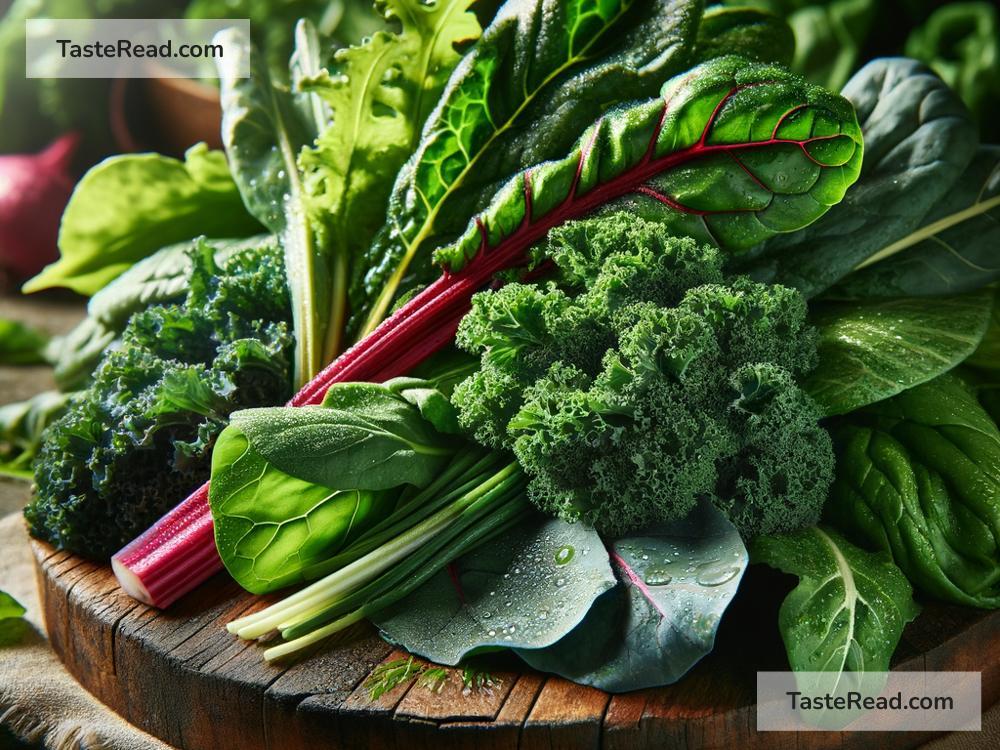Why Do Leafy Greens Taste Bitter to Some People?
Leafy greens like kale, spinach, and arugula are considered nutritional powerhouses packed with vitamins, minerals, and antioxidants. However, while some people enjoy their earthy, refreshing flavors, others find them unbearably bitter. If you’ve ever wondered why leafy greens taste bitter to some individuals, you’re not alone. It turns out that the answer involves a mix of biology, genetics, and even psychology. Let’s dive into this fascinating topic in simple terms!
The Role of Taste Buds
Our tongues are covered in tiny taste buds responsible for detecting five basic flavors: sweet, sour, salty, umami (savory), and bitter. These taste buds help us decide whether food is safe to eat or potentially harmful. Historically, bitterness was a warning sign for humans, as many poisonous plants taste bitter. Because of this, our bodies evolved to have a heightened sensitivity to bitter compounds.
Although bitterness can signal danger in some cases, many healthy foods like leafy greens naturally contain bitter substances called phytochemicals. These plant compounds, such as glucosinolates and polyphenols, are what make greens like kale and mustard greens taste bitter. While these chemicals may taste unpleasant to some, they actually provide health benefits—helping to protect your body against inflammation, cancer, and other diseases.
Genetics: The Super-Taster Effect
One major reason leafy greens taste bitter to some individuals boils down to genetics. Scientists have discovered that certain people are born with a genetic trait that makes them more sensitive to bitter tastes. These individuals are often referred to as “super-tasters.”
Super-tasters have more taste buds on their tongues compared to regular tasters or non-tasters. This means they experience flavors more intensely, especially bitterness. A specific gene called TAS2R38 plays a key role here. This gene affects how we perceive bitter compounds found in leafy greens and other foods like Brussels sprouts, coffee, and even dark chocolate.
If you have inherited two copies of the TAS2R38 gene variant associated with bitter sensitivity, you’re likely a super-taster. On the other hand, if you have one or none of these gene variants, you are less sensitive to bitterness and may find leafy greens more enjoyable. This explains why some people love spinach salads while others would rather avoid them entirely.
Cooking Can Make a Difference
The way leafy greens are prepared can also impact how bitter they taste. Raw greens often have a stronger, sharper bitterness, which may be off-putting for sensitive individuals. However, cooking can significantly change their flavor profile.
When you cook leafy greens, heat breaks down some of the bitter compounds and brings out their natural sweetness. For example, sautéing kale in olive oil, garlic, and a pinch of salt can mellow its bitterness and make it more appealing. Similarly, adding acidic ingredients like lemon juice or vinegar can help balance the bitter flavors in dishes made with greens.
Another tip is to pair leafy greens with sweet or fatty foods. A spinach salad with sliced apples and a honey-based dressing, or kale cooked with bacon or cheese, can disguise bitterness and turn greens into a delicious meal.
Age and Experience Matter
Did you know that your age and eating habits can affect how you experience bitter tastes? Babies and young children tend to be more sensitive to bitter flavors than adults. This is because, during early development, their taste buds are working to differentiate edible foods from harmful ones. Bitter vegetables might taste overwhelming to a child but become tolerable or even enjoyable with time.
As we age, our taste buds naturally lose sensitivity, which reduces the intensity of bitterness. Additionally, repeated exposure to bitter foods can train your palate to appreciate them. If you grew up eating leafy greens or regularly include them in your diet, you’re more likely to enjoy their flavors than someone who rarely eats them.
Psychological Influences on Taste
Aside from genetics and biology, psychology plays a role in how we perceive taste. Many of our food preferences are influenced by memories, experiences, and cultural norms. If you associate leafy greens with unpleasant memories (like being forced to eat them as a child), you’re more likely to perceive them as bitter or unappetizing. Conversely, if they remind you of home-cooked meals or recipes you love, you’re more likely to enjoy them.
Conclusion: It’s Not Just About Taste
In the end, the bitterness of leafy greens is a complex phenomenon influenced by genetics, cooking methods, age, cultural preferences, and personal experiences. If you find leafy greens bitter, it doesn’t mean there’s something wrong with you—it’s just how your body is wired to perceive certain chemical compounds. The good news is that there are countless ways to prepare and enjoy leafy greens that reduce their bitterness, from cooking techniques to creative flavor pairings.
So, the next time you feel tempted to give up on kale or spinach because of their bitter taste, try experimenting in the kitchen. You might be surprised to discover a new way to enjoy these nutrient-packed greens. After all, everyone’s taste buds are unique—and that’s part of what makes food so special!

